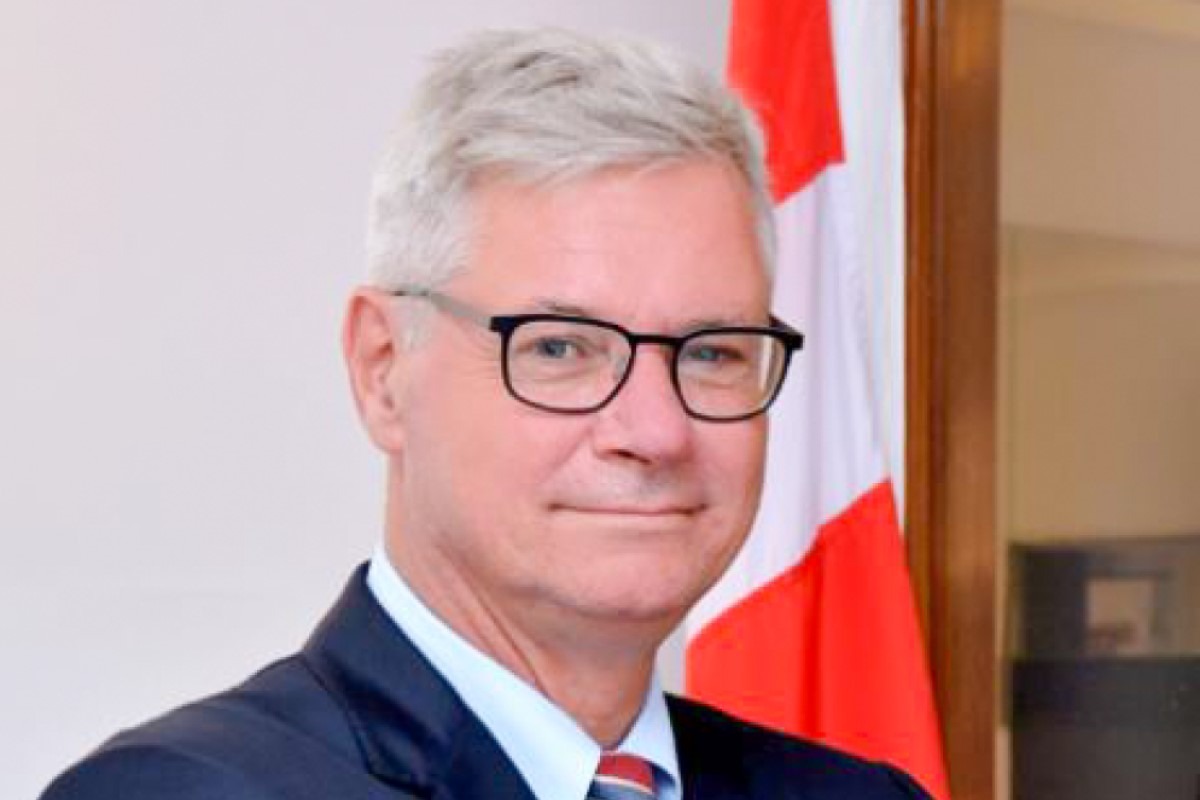Danish Ambassador Expects Japan, NATO Ties to Become Stronger; Security Environment Now More Complex

Peter Taksøe-Jensen, Ambassador of Denmark in Japan
10:05 JST, July 9, 2024
Ahead of the NATO Summit in Washington set to start on Tuesday, Danish Ambassador to Japan Peter Taksoe-Jensen contributed the following piece to The Japan News. The Danish Embassy serves as an official NATO contact point in Japan.
This year NATO marked its 75th anniversary. NATO was founded in 1949 by 12 member states to ensure peace and security. Over the past 75 years, NATO has grown in size, becoming the protector of freedom for nearly 1 billion citizens living in Europe and North America. At the heart of NATO is the solemn commitment in Article 5 of the North Atlantic Treaty, stipulating that an attack against one ally is an attack on all allies. This pledge of mutual defense is the predominant reason that NATO is the strongest peace alliance in history.
But the bond between the allied countries goes beyond defense. NATO countries are first and foremost bound by our shared history, values, and interests. We are all democracies who are strong supporters of the safeguarding of democratic principles. Promoting a world that respects sovereignty, human rights, and international law is just as important as guaranteeing security for our own citizens.
NATO has always been a North Atlantic alliance. However, the international security environment has become more complex and interconnected. Not only are we facing threats that know no territorial boundaries, but we’re also seeing authoritarian regimes challenging the well-established principles underpinning a peaceful world order. Therefore, the partnerships with like-minded countries across geographical lines are becoming more vital to our own security.
But the security of our partners is also important to NATO. Our unwavering support for Ukraine is an insurance to partners that the violation of international law won’t be tolerated. The prospects of Ukraine losing the war would have direct consequences on other parts of the world, as it would signal that changing the status quo with force is possible.
Japan sees the international security environment through the same lens as NATO, acknowledging that what happens in this region matters to NATO, and what happens in Europe matters to the Indo-Pacific. The partnership between NATO and Japan is thus a natural result of a shared devotion to preserving peace and stability.
Since the adoption of the ITPP (Individually Tailored Partnership Programme) during the last NATO Summit in Vilnius, NATO and Japan have worked closely on the implementation of the strategic cooperation.
As the NATO Summit is currently unfolding, NATO will take further steps to deepen its partnerships with like-minded partners. At a time where the security environment faces unforeseeable changes, joining forces to maintain world stability has never been more urgent. With its leading support to Ukraine and its contribution to the relief operation in Turkiye, Japan is a prime example to all of our partners. Once the summit has concluded, I expect the ties between NATO and Japan to be even stronger than today.
Top Articles in Editorial & Columns
-

Riku-Ryu Pair Wins Gold Medal: Their Strong Bond Leads to Major Comeback Victory
-

40 Million Foreign Visitors to Japan: Urgent Measures Should Be Implemented to Tackle Overtourism
-

China Provoked Takaichi into Risky Move of Dissolving House of Representatives, But It’s a Gamble She Just Might Win
-

University of Tokyo Professor Arrested: Serious Lack of Ethical Sense, Failure of Institutional Governance
-

Policy Measures on Foreign Nationals: How Should Stricter Regulations and Coexistence Be Balanced?
JN ACCESS RANKING
-

Japan PM Takaichi’s Cabinet Resigns en Masse
-

Japan Institute to Use Domestic Commercial Optical Lattice Clock to Set Japan Standard Time
-

Israeli Ambassador to Japan Speaks about Japan’s Role in the Reconstruction of Gaza
-

Man Infected with Measles Reportedly Dined at Restaurant in Tokyo Station
-

Videos Plagiarized, Reposted with False Subtitles Claiming ‘Ryukyu Belongs to China’; Anti-China False Information Also Posted in Japan
























